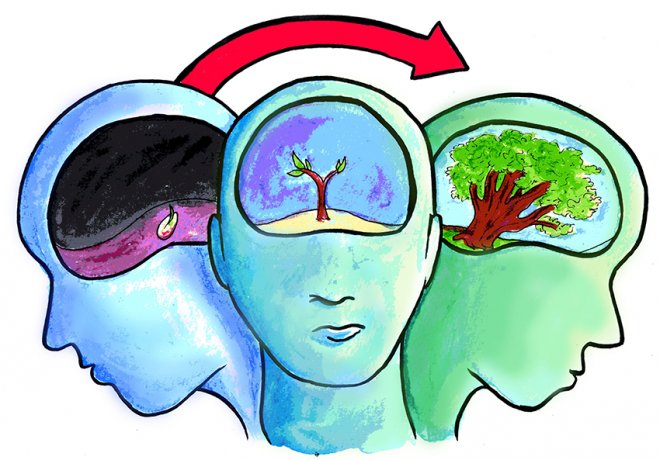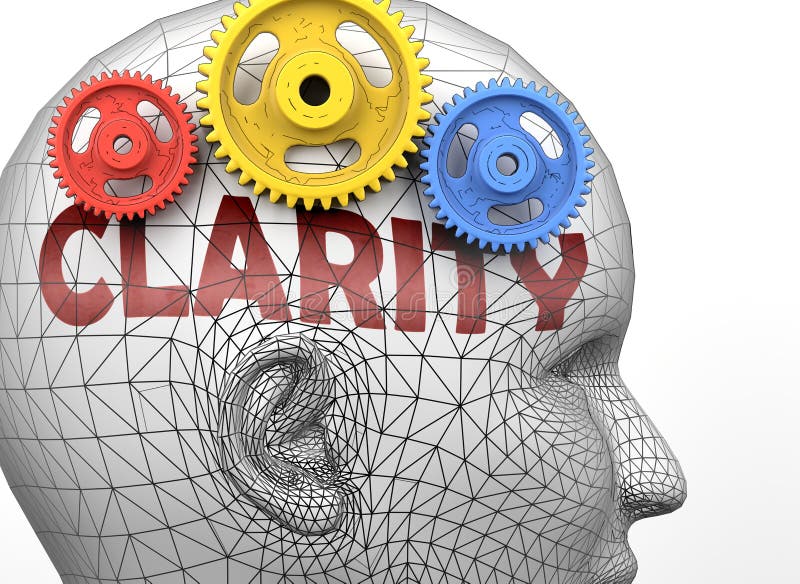Mindset is a set of attitudes or beliefs that we hold. Mindset is crucially important because our attitudes and beliefs affect everything we do, feel, think, and experience. Our mindset influences our perceptions and how we move through the world. Although we have one overall mindset, this can be made up of many smaller mindsets. Some of these help us to improve our well-being and succeed in the world. Others hurt our ability to do so. That’s why developing certain mindsets can greatly help us reach our goals, enjoy our lives, and be more successful. In this article, we’ll talk about some of the most beneficial mindsets and how you can develop them.
A healthy mindset involves finding ways to grow from your thoughts instead of letting them control your life. Rather than dwelling on a negative thought until it becomes overwhelming, the healthy mindset tries to move beyond that thought or simply accept it.

Major Elements for Healthy Mindset:
Do you guys know about the elements of a healthy mindset? If you don’t know let me tell you that there are several elements to set a healthy mindset. Among them the major elements are mentioned below:
1. Calmness.

The ability to calm your mind when you’re under pressure is crucial to a healthy mindset. When your thoughts are all over the place, it’s difficult to see things as they are. Calmness comes when you bring awareness to what’s happening and what you’re thinking. By figuring out go-to strategies and practices that calm your mind, you can center yourself and recognize when you’re overthinking or worrying about insignificant details.
2. Clarity.

Having a clear idea of what’s important to you is key to dealing with indecision. So much of our brain space gets taken up when we’re unsure of who we are and what we want. When you get clear on your priorities, goals, and values, you can remove the overwhelm that comes from uncertainty.
3. Compassion.

One of the biggest contributors to an unhealthy mindset is a lack of compassion toward yourself and others. When you’re constantly comparing yourself to others, pressuring yourself to be perfect, and doubting your abilities, you only sabotage your success. Compassion allows you to accept yourself, set healthy expectations, and trust yourself and the journey you’re on.
4. Concentration.

Concentration is about commitment and dedication to yourself. We live in an age of distractions, which makes it all too easy to lose track of what’s important to you and even who you are. When you focus on what other people are doing instead of your path, you get stuck. Focusing on what matters and making sacrifices with your time allows you to follow through and make progress.
5. Courage.

Courage helps us take action. When we procrastinate and avoid taking action, we keep ourselves stuck. Courage might sound like it’s about taking big, scary leaps into the unknown, but sometimes courage is as small as tackling a simple task you’ve been putting off. Courage allows us to take imperfect action, and that action helps us to build confidence, resiliency, and strength within ourselves.
Top tips to improve your mental wellbeing.
There are several ways to improve your mental wellbeing. Some of the major ways are explained below:
1. Reframe unhelpful thoughts.

Reframing thoughts is when you actively notice unhelpful thoughts in your mind and reframe them into more useful thoughts. Some common patterns in people’s thoughts can lead to practical and emotional problems in everyday life. Finding something to be grateful for in a challenging situation is a type of positive reappraisal. For example, after a breakup, you could think about the opportunities to meet new people, the things you learned from the relationship, and the gratitude you feel for the time you spent with the person.
Examples of positive reframing are mentioned below.
- Identifying negative thoughts.
- Responding to negative thoughts.
- Change your language.
- Start a gratitude journal.
- Surround yourself with positive people.
- Practice positive affirmations.
- Focus on the good and the now.
2. Get Good Sleep:

Sleep is vital to brain health, including cognitive function. Sleeping an average of 7-8 hours each day is related to better brain and physical health in older people. The sleep-wake cycle is influenced by many factors. A regular sleep-wake schedule is related to better sleep and better brain health. Sleep helps maintain cognitive skills, such as attention, learning, and memory, such that poor sleep can make it much more difficult to cope with even relatively minor stressors and can even impact our ability to perceive the world accurately.
3. Be in The Present:

- Disconnect from technology.
- Find a hidden spot to enjoy nature.
- Spend time alone.
- Tell your mind to calm down.
- Focus on a single item near you.
- Reflect on the love in your life.
- Focus on your breath.
- Avoid thinking about the past.
4. Connect with Others:

Spending quality time with friends or family, talking to someone about how we are feeling, or finding ways to help other people can all help stop you from feeling lonely and improve your mental health and well-being. This can be online, by phone, or seeing someone in person. The benefits of social connections and good mental health are numerous. Proven links include lower rates of anxiety and depression, higher self-esteem, greater empathy, and more trusting and cooperative relationships.
- Be your authentic self. You can’t go wrong with being yourself.
- Respect people’s boundaries.
- Stay focused on the present.
- Move past the surface level.
- Share the conversation.
- Be genuine with your admiration.
- Be a good listener.
- Schedule your time.
5. Do Something for Others:

- Start being a source of sincere support.
- Start giving people your undivided attention.
- Start respecting and supporting people who are different than you.
- Start being willing to be wrong. …
- Start giving recognition and praise for the little things.
- Start giving people the space to save face.
- Start being a bit more gentle.
6. Live A Healthy Life:

Living a healthy life means eating a balanced diet, getting regular exercise, avoiding tobacco and drugs, and getting plenty of rest. Our bodies are like machines that require a balance of protein, carbohydrates, fat, vitamins, minerals, and water to stay in good working order. If you believe that you can improve your abilities through effort and conscious, deliberate practice (growth mindset), you focus on learning and growing and getting better rather than trying to prove how great you are. You learn from “mistakes” and “failures” rather than letting them define you.
Perhaps you have a negative outlook on life, or you just want to clear your mind a little bit and come back with a fresh outlook, there are several things that you can do to make this a reality. Living a healthy lifestyle can help you in a variety of ways, not only physically but also mentally and emotionally. Here are some great lifestyle tips and choices that you can make to feel your best all the time.
a. Drink plenty of water.
When you’re dehydrated, your mind can feel cloudy and you might not be able to think as clearly as you usually do. Not drinking enough water is the main cause of dehydration, and you might not necessarily think you’re dehydrated until it gets so bad that you need to see a doctor. If you’re feeling lethargic, tired and like you can’t think straight, try drinking 300—500ml of water and see if that helps.
b. Make regular exercise a habit.
People who make a habit of exercising regularly tend to feel much better than those who don’t put in that time and effort. If you’ve ever spent an extended period exercising regularly, you will know how it can affect every part of your body and mind. If you’re struggling to find the time to exercise, start with just five minutes per day. This could be first thing in the morning or last thing at night. It could be a brisk walk during your lunch hour, or a quick gym session down the road after work.
c. Go to sleep on time.
If you’re not used to going to sleep before 1 am, try to change your sleeping habits. This is particularly the case if you go to work in the morning and need to be up quite early to get to work. Measure how much sleep you’re getting per night – if you’re getting less than seven hours then it could explain why you don’t feel like you have a clear and positive mindset. Likewise, if you are falling asleep without remembering because you are falling asleep in the evening at any time and in any place, this could mean that you are sleep deprived, and this also plays a massive part in how your mind feels.
6. Write a letter to future you:

- They can be powerful tools for remembering.
- They can help you realize how much you’ve grown.
- They can help you refocus on what’s important to you.
- They can help you keep perspective.
- Decide how far into the future you want to read your letter.
In Conclusion:

